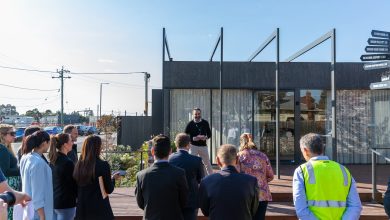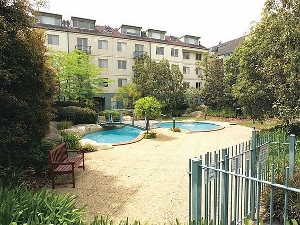
Exclusive: The STRA boomerang comes to NSW
Unfettered & under-regulated : In his latest column for AccomNews Michael Johnson details AA's recommendations to solve the STRA problem
The debate around Short Term Rental Accommodation (STRA) and the nation’s housing shortage has become a boomerang issue for our Association.
Every time a new body, be that a state, federal or local government, tries to grapple with the issue we end up having the same conversations, and we regularly steer those conversations away from knee-jerk reactions towards genuine solutions.
This column was published in the new Autumn edition of AccomNews available now. Read it HERE
The recent inquiry into the rental crisis in NSW is no exception. Submissions made to the inquiry by accommodation platforms Airbnb and Stayz called for a new levy to be applied to all accommodation providers, including hotels. To start with, this is simply unfair.
Accommodation hotels do not contribute to the removal of housing stock from the long term rental market and should not be levied with a tax to address rising rental costs. We argued this most recently in Victoria and were subsequently exempt from the 7.5 percent levy on STRA platforms due to commence on January 1, 2025.
Many argue STRA companies are competition for our members, and we are simply looking for an advantage over them, but that misses the greater point. The short-term rental crisis significantly impacts our industry. Accommodation properties continue to face staff and skills shortages — particularly in regional destinations — and when hotels, motels and serviced apartments can find suitable staff there is nowhere to house them.
This is worse in prime tourist areas, like Byron Bay, which already has many accommodation options and where STRA has exploded in recent years. On top of that, uncertainty about the regulation of STRA discourages investment in the commercial accommodation sector in general, which employs hundreds of thousands of people nationally and is worth billions to the economy.
In our submission to the NSW Government, we made it clear that we do not support a levy on any accommodation. We do not support it because it will simply be passed on to consumers, damaging tourism further, and because in the end it will not reduce STRA listings or return properties to the long-term rental market.

We believe a more stringent multifaceted regulatory approach which includes caps and better enforcement of STRA registration, as well as data sharing by the platforms, will deliver the outcome the government and our industry needs. We came to these conclusions by reviewing what governments here and overseas have tried and how it worked.
For example, Western Australia now has a state-wide registration process, a 90-day cap beyond which a DA is needed as well as a financial incentive of $10,000 for Perth owners to revert to long-term rental. Brisbane City Council requires a development application for STRA and a rate surcharge increase on short-term properties of 65 percent, and Byron Shire Council will have a limit of 60 days per annum from 2024.
New York has now limited Airbnb to only “hosted” accommodation, where the owner is on site, and the State of Penang, in Malaysia, has banned Airbnb in all but serviced apartments where 75 percent of residents
have agreed to allow it.
Here in NSW, we have 35,000 dwellings used as non-hosted short term rental accommodation, 15,000 hosted dwellings, and 45,000 dwellings used as holiday homes only, and not as short-term rentals. We recommend focusing on the first group because they can more readily shift from short-term to long-term rental.
Among the many recommendations in our submission, we would like to see a NSW-wide cap of 90 days for un-hosted STRA with local councils authorised to implement a lower cap depending on their situation. We should continue the obligatory registration for all STRA and increase fees for un-hosted properties to cover stronger compliance monitoring.
We think registration data, using a registration number unique to a particular property, should be shared across platforms to ensure the property’s full rental activity is tracked with an obligation on platforms and STRA systems to share data. The listing number should be displayed on all advertisements of that unit, and it should be available for viewing by persons other than government.
In particular, in strata buildings the strata management company should be able to access the register of properties being used for STRA and the register should record the dates on which the property was used for this purpose.
Property owners seeking to exceed the cap must apply for DA approval and be subject to commercial regulation like hotels must, and local councils should be able to charge higher than residential rates for properties registered as STRA.
Our policy is focused on influencing property owners to reconsider long-term rental.
It allows for regional differences in long-term rental demand and seasonal tourism and balances the needs of property owners with the needs of the community. It is also designed to send a clear signal to property owners and the STRA industry that unfettered, under-regulated STRA has gone too far.
Michael Johnson is the CEO of Accommodation Australia, the peak tourism accommodation body. He has extensive experience in the hotel and tourism industry including the successful relaunch of PARKROYAL Parramatta in 2016 and strong industry connections across Australia and New Zealand. Previously he managed PARKROYAL Melbourne Airport, Amora Jamison Sydney and Totally Tourism in Queenstown New Zealand.






